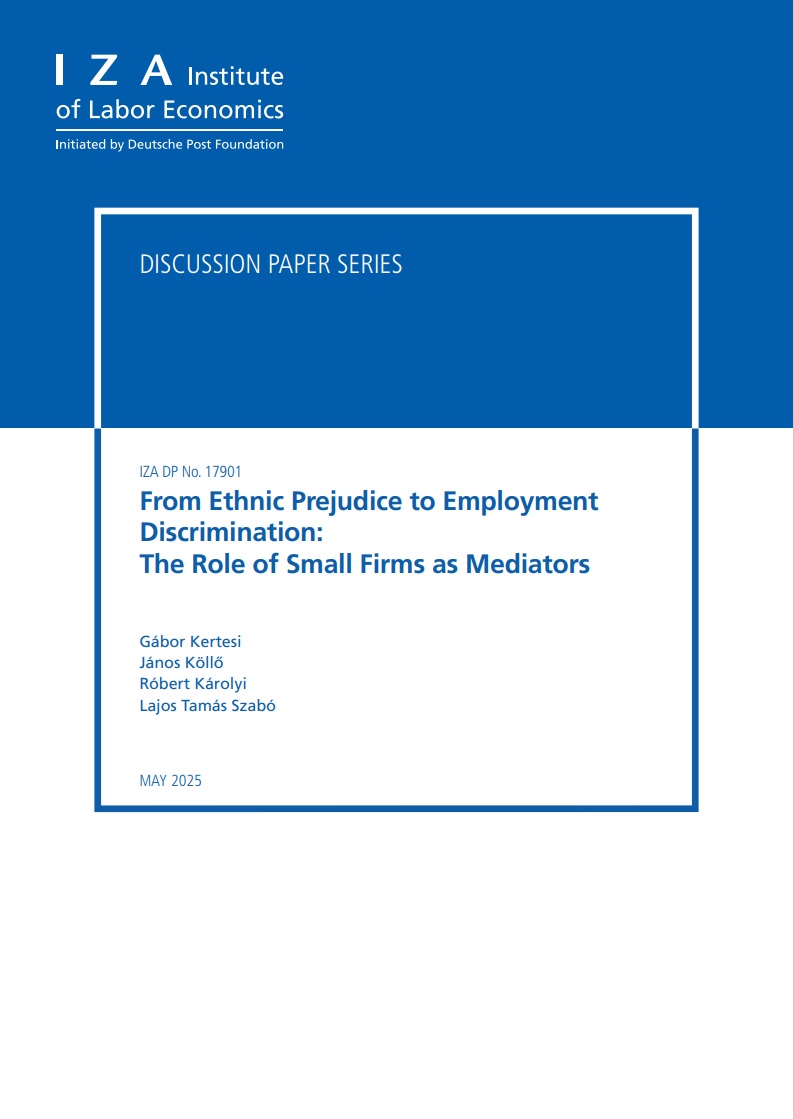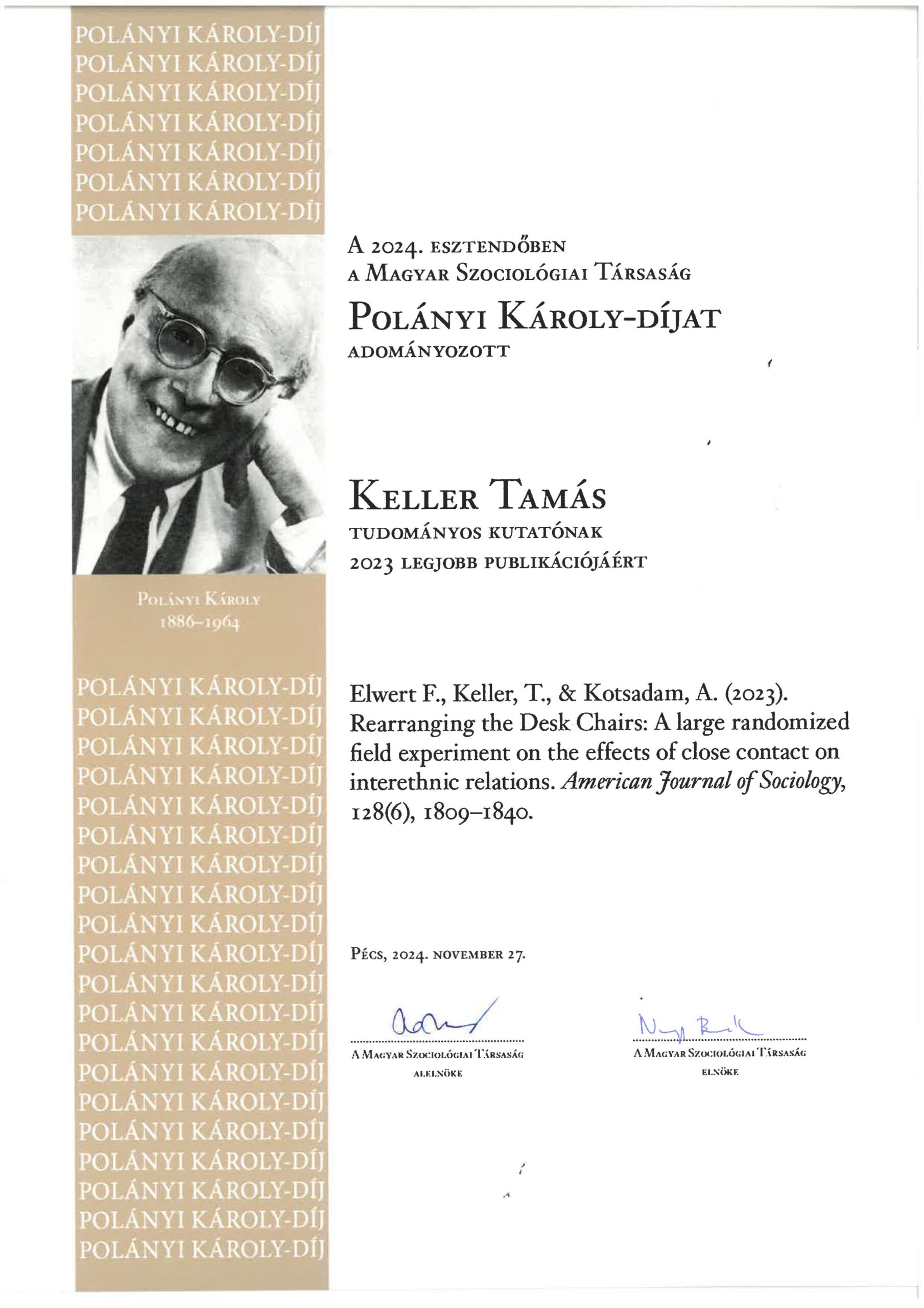FDI, technological progress and inequality
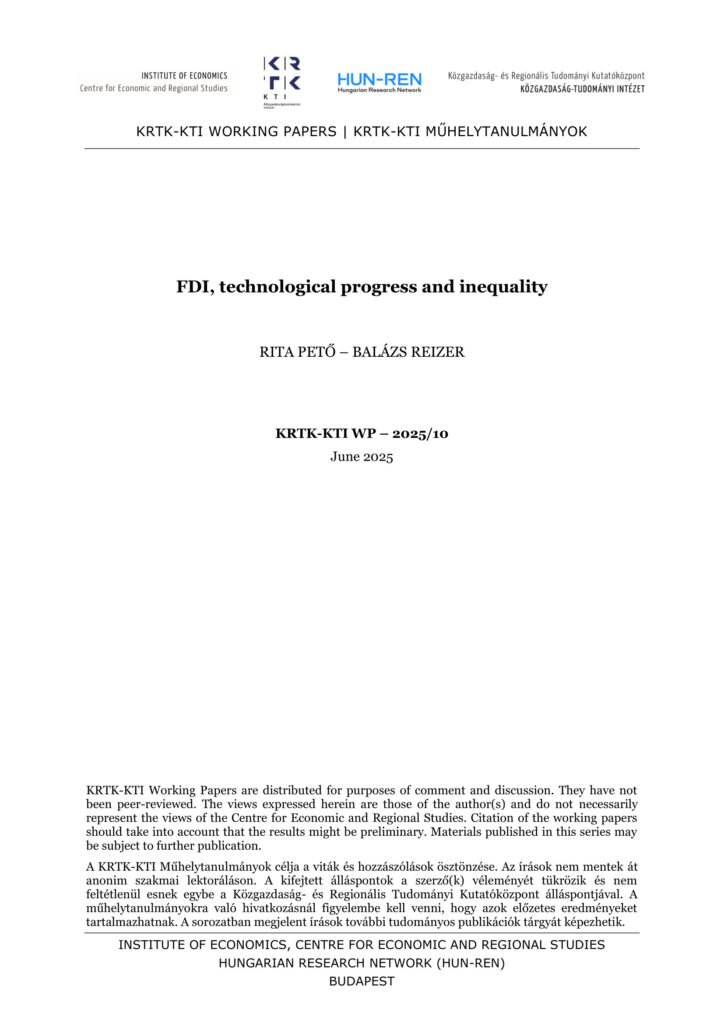
How does foreign direct investment impact wages and the task content of jobs? Using linked employer-employee data from Hungary and an event study approach we show that FDI increases the returns to abstract tasks, while it does not affect the returns to routine and face-to-face tasks. This finding appears to be driven by skill-biased changes […]
Foreign-owned firms and the gender wage gap: Does cultural transmission matter?
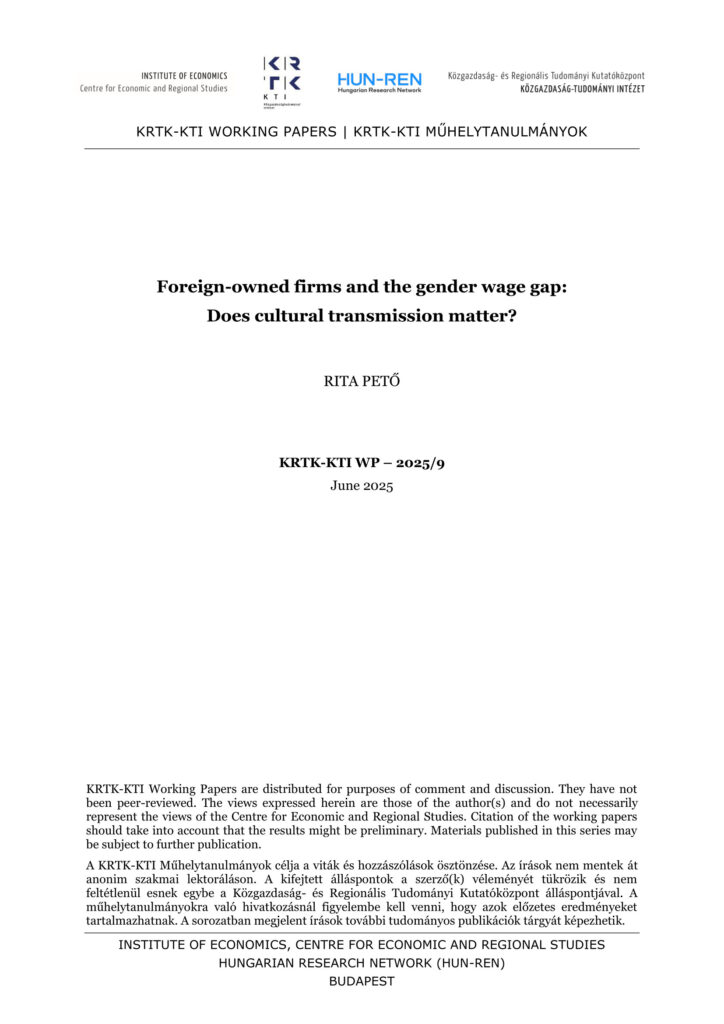
This paper examines how foreign direct investment (FDI) influences the gender wage gap, using matched employer-employee data from Hungary between 2003 and 2017. I find that foreign-owned firms exhibit a 4 percentage points larger within-firm gender wage gap compared to domestic firms, even after accounting for worker- and firm-level selection. This gap persists even after […]
The role of firms in the wage penalty for chronic health conditions
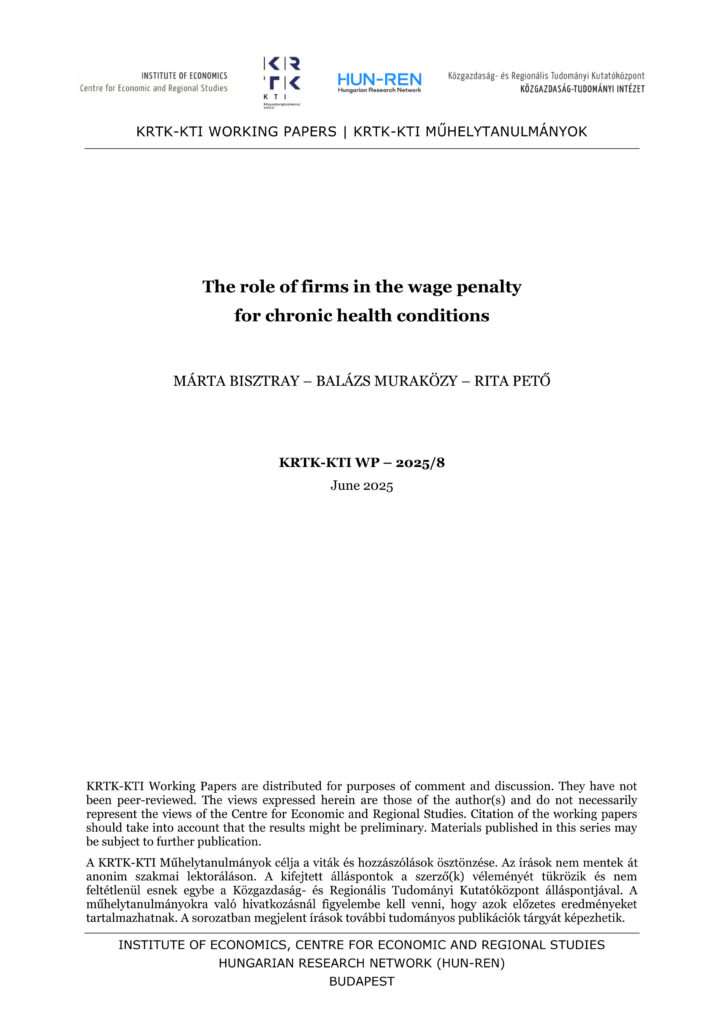
More than one-third of people in the EU report having a chronic health condition (CHC), and their share in the workforce is expected to rise. Using unique linked employer-employee administrative data from Hungary—combining detailed healthcare utilization with wage records—we identify workers with CHCs and analyze their labor market outcomes with a focus on the role […]
Supply-demand price decoupling in European-type day-ahead electricity markets
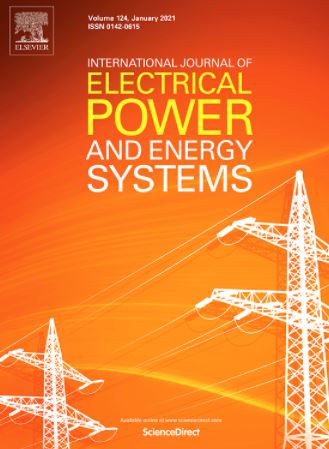
Anita Varga – Botond Feczkó – Marianna E.-Nagy – Dávid Csercsik International Journal of Electrical Power & Energy Systems, Vol. 169. Paper No. 110788 (2025) Abstract In this paper, we consider the possibility of supply–demand price decoupling in European-type day-ahead electricity markets, considering also the possibility of the supply price exceeding the demand price for […]
Round-Tripping Foreign Direct Investments: What are the Main Factors?
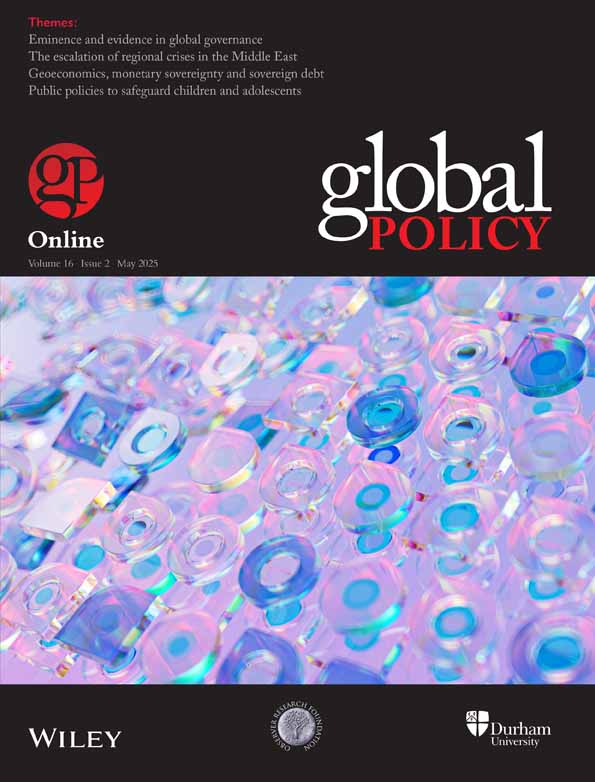
Magdolna Sass – Imre Fertő Global Policy, Early View First published: 28 May 2025 Abstract FDI round-tripping has become an increasingly important issue in the world economy, with significant implications for tax revenues, regulatory frameworks, and economic policy. Little is known about its importance and characteristics from a country of origin perspective, and thus economic policies […]
Value chains for sustainable mountain development: a qualitative understanding of 23 European cases
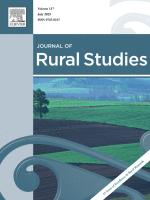
Kirsty Blackstock – Rachel Creaney – Mar del Mar Delgado-Serrano – Sharon Flanigan – Corrado Ievoli – Michele Moretti – Gusztáv Nemes et al. Journal of Rural Studies, Vol. 118. Paper No. 103640 (2025) Abstract This paper presents findings using a novel, qualitative and interpretative approach to value chain assessment. The approach was used to further […]
Mobilizing Rural Support: Targeted Government Spending and Democratic Backsliding in Hungary
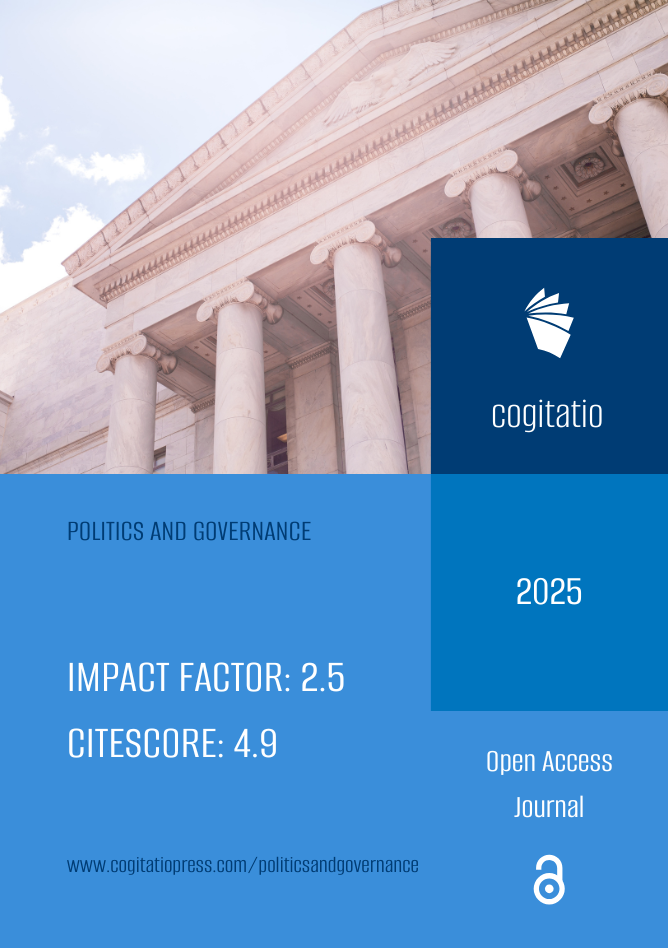
Krisztina Szabó – Ádám Reiff Politics and Governance, Vol. 13. Art. No. 9542 (2025) Abstract The spread of democratic backsliding has drawn scholarly attention to the strategies and approaches characteristic of these regimes. However, our understanding of targeted government spending programs designed to favor specific segments of society to build and reinforce a loyal support […]
Reducing Food Loss: Post-harvest Strategies at the Small Scale

Zsófia Benedek – Katalin Kujáni – Judith Molnár Eurochoices, Early View, First published: 19 May 2025 Summary This article examines post-harvest technologies and practices tailored to small-scale operations, highlighting their potential to reduce food loss. A comprehensive approach to conceptualising post-harvest technologies is proposed across various stages of the value chain. By categorising solutions into […]
Corruption and extremism
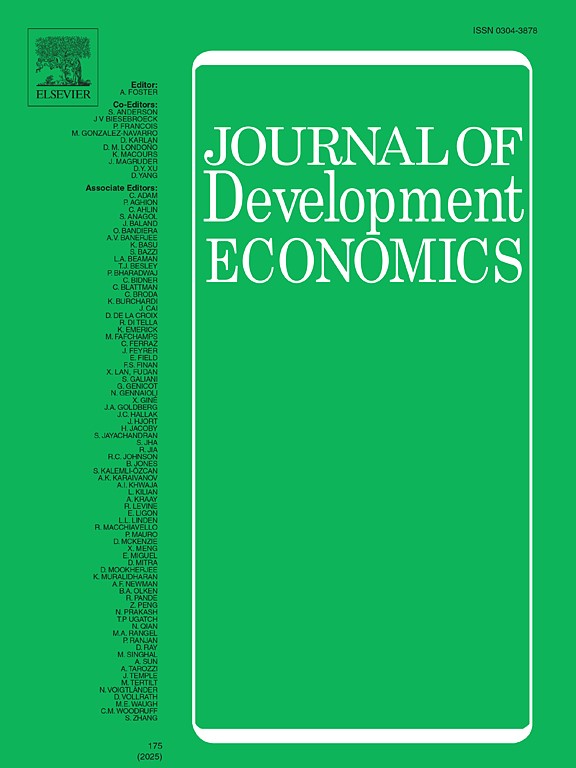
Attila Gáspár – Tommaso Giommoni – Massimo Morelli – Antonio Nicolò Journal of Development Economics, In Press, Journal Pre-proof, 103526 Available online 15 May 2025 Abstract This paper shows that corruption generates extremism, but mainly on the opposition side. While corruption hurts all citizens, only voters on the minority side may desire to switch to […]
Two axiomatizations of the pairwise netting proportional rule in financial networks
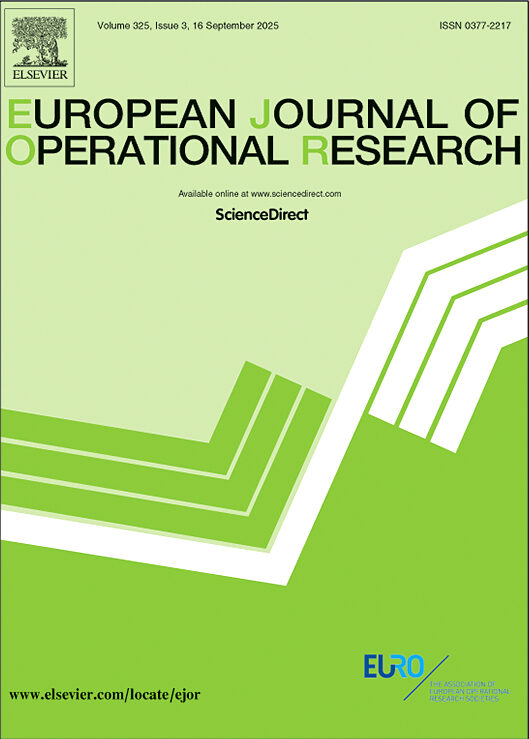
Péter Csóka – P. Jean-Jacques Herings European Journal of Operational Research, Vol. 325. No. 3. pp. 553-567. (2025) Abstract We consider financial networks where agents are linked to each other via mutual liabilities. In case of bankruptcy, one needs to distribute the assets of bankrupt agents over the other agents. One common approach is to first […]
Wine, markups, and export behavior: Evidence from Hungary
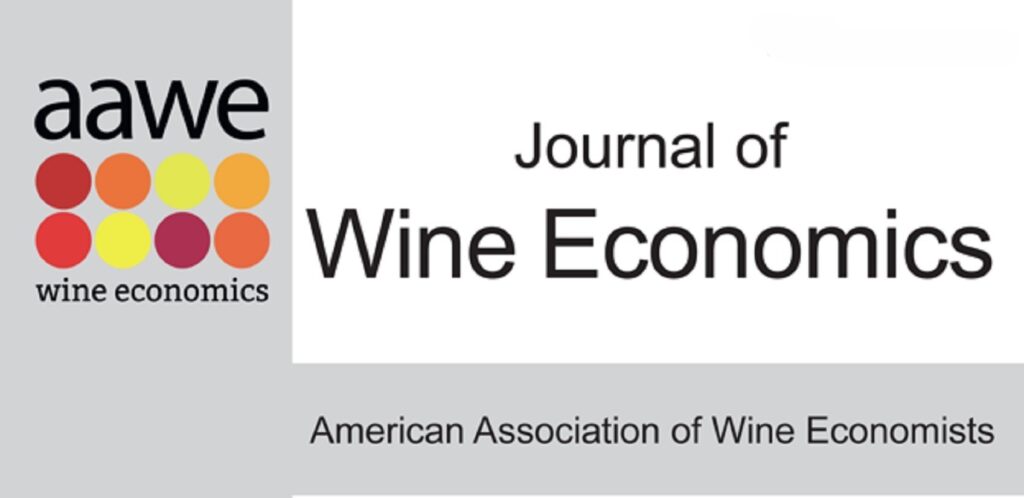
Gergely Csurilla – Zoltán Bakucs – Imre Fertő Journal of Wine Research, First View , pp. 1-13 (2025) Abstract The study examines the influence of markups on the export decisions and subsequent export intensity of firms within the Hungarian wine sector. Additionally, we evaluate the impact of entering and sustaining a presence in export markets on firms’ markups […]
Gender-based differences in eco-efficient farming

Imre Fertő – Lajos Baráth – Štefan Bojnec Scientific Reports, Vol. 15. Art. No. 15895 (2025) Abstract This study investigates gender-based differences in eco-efficiency among Hungarian field crop farms, using data from the Farm Accountancy Data Network between 2015 and 2020. Applying Data Envelopment Analysis and Blinder-Oaxaca decompositions, we reveal a consistent eco-efficiency advantage for women-headed […]


